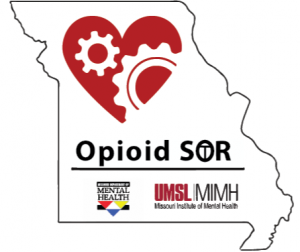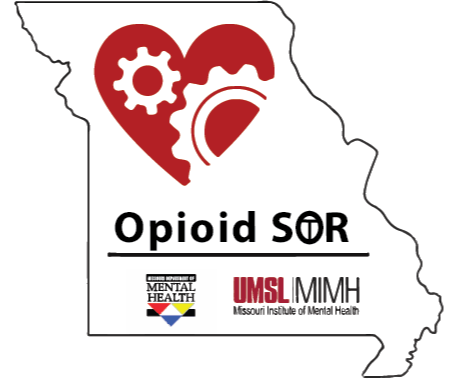 Pro-Social Events and Supporting Growth in the Recovery Community
Pro-Social Events and Supporting Growth in the Recovery Community
By Ruiz, Aaron. Personal Interview. David Stoecker. April 22, 2019
On February 2, 2014, actor Phillip Seymour Hoffman was found dead on the bathroom floor of his New York City apartment. The official coroner report listed the cause of death to be an overdose caused from ingestion of a cocktail of chemicals including heroin. News of the death of the indie film darling came as a shock wave ripping through the media. Thousands took to social media to throw in their proverbial two cents about Substance Use Disorder. The director of Better Life in Recovery (the organization that runs Springfield Recovery Community Center), recalls scrolling through the comments section of an article recounting the actor’s death and seeing no empathy, nothing but ignorance and callous disregard for individuals living with SUD/OUD. He saw this as an opportunity to fill a hole in the community—expand education efforts, provide more advocacy for treatment, and grow a supportive, family-friendly environment for the recovery community of Springfield, MO.
We reached out to David Stoecker, Co-founder of Springfield Recovery Community Center, to learn more about how the RCC has developed under STR and what has been their strategy over the years to provide sustainable support for people in recovery.
“The mission of the Springfield Recovery Community Center is empowering people in recovery to regain hope, enjoy life and become a vital part of the community. Before STR/SOR funding, our meeting space was limited to holding no more than two groups at the same time. We were operating under limited hours since we were staffed only by a group of volunteers. At this point we were maintaining about forty groups a month and being open for only about eighty hours a month. Thanks to STR/SOR funding, we are now able to dramatically expand our hours, pay our staff, and because of these internal administrative changes we are able to host more groups and additional pro-social activities. We now are hosting over eighty events and activities and are open over two hundred fifty hours a month to better meet the needs of those we encourage and support.
Admin specifics aside, we host many groups and activities to support people in recovery for OUD. We have more traditional meetings, such as Narcotics Anonymous. We also offer faith-based mutual support groups. We opened up the first SMART Recovery open group in the state of Missouri, which is a mutual support group that teaches attendees cognitive behavioral tools instead of requiring a spiritual or religious base. We also have groups like Refuge Recovery, which is based on Buddhist principles. We even offer exercise groups. We have Good Dad’s classes for fathers and Jobs 4 Life classes to help people learn how to find employment. We take a meeting into both our local residential treatment facilities each week and then those residential clients are shuttled to the Springfield Recovery Community Center twice a month so they can become familiar with where we are, what we do, and meet our staff. We have free dinner for anyone who attends groups or classes 3 nights a week. We not only support people with SUD/OUD, we also host several weekly support groups for the parents and family members of individuals living with SUD. In addition, we offer a variety of family friendly pro-social activities: UFC Fight Nights, New Year’s Eve parties, Super Bowl parties, Missouri Stream Team float trips, painting Springfield Elementary School playgrounds, and Karaoke parties to name just a few.
We have multiple programs that support people who are prescribed medication, but all of those programs are available to anyone who is in recovery except one. We support all pathways to recovery at SRCC. We provide free Narcan® as well as hands-on overdose response education. We do Recovery Check-Up phone calls where we call individuals in recovery anywhere between once a week to once a month (frequency of calls is to the individuals’ discretion) to touch-base and see how they are doing or if they need anything. The only meeting we have that is only specifically for people prescribed medication is the Medication Assisted Recovery support group (M.A.R.S.) we hold every week.
We have found word of mouth and social media to be great ways to get people to come to pro-social events. We also have free food at many of our activities and events, which also encourages a greater turn-out. For some of our bigger events we have raffles, door prizes, scholarships, free childcare, as well as a shuttle service to pick people up and take them home if they live within city limits. We find all of these little amenities help make the individual feel more welcome, which in turn makes our events more successful, and as a result, better attended.
We do face our fair share of challenges, specifically, stigma and substance use disorder/recovery myths that exist in the community. Ideas like, “people who use drugs never get better” and, “these people choose to be addicts.” We have combated this and many other false narratives by being visible and vocal in our community. To further quell stigma, we provide to the public educational tools such as town hall meetings, recovery language trainings and hold free community summits. We have also partnered with the Missouri Recovery Network and the Missouri Mental Health Foundation to create an educational documentary, Not My Child: Helping Families Understand Substance Use and Recovery.
We partnered with members of the LGBTQIA+ community and hosted the Transgender Day of Visibility Open Mic Night and Art Show this past March. We are actively working with various communities to ensure people self-identifying as LGBTQIA+ feel safe and included in all of the events and groups we offer. We are also always open to starting more events, groups, and classes that are LGBTQIA+ inclusive to better serve all communities. We are also re-shooting and reediting the documentary we created, Not My Child so we can have more parents of color represented in the film, and sharing their unique perspectives. We are working with partners to continue growing and are adjusting infrastructure so we can establish 6 month, 1 year and 5 year goals to work toward. One of those goals will be creating a youth documentary to compliment Not My Child so we can support a wider net of age demographics in our community. We are also initiating conversations with our local police department to see if there is interest in creating a program that will focus on diversion of first time nonviolent offenders who are partnered with Certified Peer Specialists to get the support and help they need, instead of incarceration.
In closing, I know the field we are in, the work that we do, and the services we provide, can all seem overwhelming at times, but what you do matters. You are having an impact. You might not be able to see all of the details of the amazing things you are doing, but you are making a difference—so dream big and never give up!”
***This article is being posted with the permission of the author. The article originally appeared in the April 2019 STR/SOR Newsletter from the University of Missouri Saint Louis – Missouri Institute of Mental Health as a part of STR/SOR.

